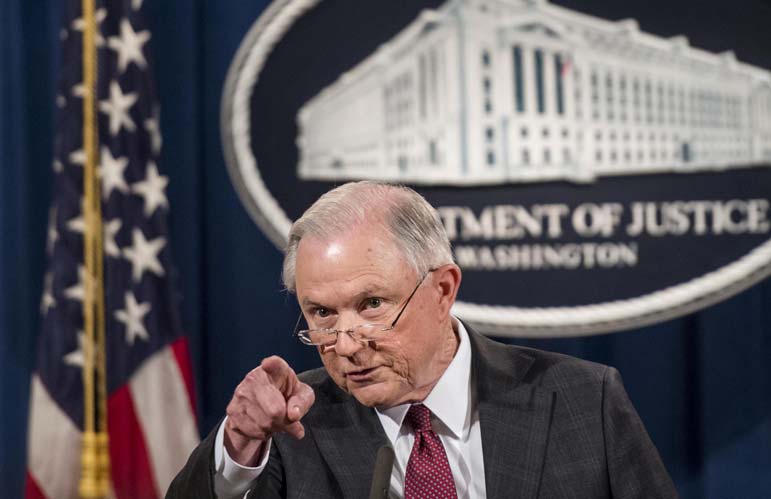 Melina Mara for The Washington Post
Melina Mara for The Washington Post
Democrats calling for a special prosecutor to investigate links between Donald Trump's presidential campaign and Russia found new momentum with reports Wednesday that Attorney General Jeff Sessions, then a senator, had two meetings with the Russian ambassador before the election - meetings that Sessions failed to disclose during his confirmation hearings.
While this revelation made Sessions' recusal from any role in ongoing criminal inquiries related to Russian campaign involvement a no-brainer, the appointment of a special prosecutor would likely be a mistake. Indeed, bringing in such a prosecutor could ensure that the details of any ties between the Trump campaign and Russia remain secret forever.
Although Congress allowed the independent counsel law to lapse in 1999, there remains a mechanism for the Justice Department to appoint a special prosecutor to conduct politically sensitive investigations. If it is perceived that the attorney general may have a conflict of interest, he can recuse himself and have the deputy attorney general name a special prosecutor to take over an investigation. This is precisely what happened when undercover CIA agent Valerie Plame's name was leaked to the media in 2003.
Because news reports linked the leak to officials in the George W. Bush administration and, in particular, Vice President Dick Cheney's office, then-Attorney General John Ashcroft - who had close ties with the vice president and president - had his deputy, James Comey (now the FBI director), appoint a special prosecutor. Comey tapped Patrick Fitzgerald, the U.S. attorney from Chicago, and Fitzgerald aggressively investigated for two years, ultimately convicting Cheney chief of staff Scooter Libby on charges of perjury and obstruction of justice.
This is the model many Democrats are now clamoring for: the appointment of an aggressive, independent and apolitical prosecutor to investigate possible ties between Trump's campaign and Russia, to follow the trail wherever it leads and to prosecute anyone determined to have broken the law.
But many overlook a huge potential downside to this approach. Prosecutors are not journalists, and their job is not to inform the public of the results of their investigations. Rather, their mission is to gather all of the relevant facts and determine whether a crime was committed and, if so, whether it can be proved in court beyond a reasonable doubt. Their work, when done properly, is done in secret. Indeed, violations of grand jury secrecy can result in serious sanctions from the court.
If, after a full criminal investigation, it was determined that a crime occurred but the critical evidence was not obtainable - say, for purposes of argument, that this evidence was in Russia, unobtainable by subpoena - then it would be improper to seek an indictment. Critically, the entire investigation would then remain secret. It would be a violation of law for a prosecutor to make public the results of a grand jury investigation that did not result in an indictment.
Further, it is entirely possible that there could have been improper or inappropriate contacts between the Trump campaign and Russian intelligence without U.S. laws having being broken. If, for example, a Trump campaign operative actively coordinated with WikiLeaks the release of Clinton campaign emails - originally hacked by the Russians - the public would be justifiably outraged. But that does not necessarily mean the conduct was illegal.
Were a special prosecutor to reach such a conclusion, the public would remain entirely in the dark. All they would know is that, after many months - or, more likely, years - of investigation, the special prosecutor had packed up his or her bags and gone home. No special reports. No Comey-style news conferences. Just radio silence.
Needless to say, this would be highly unsatisfactory. The public has a right to know, conclusively, whether their president's campaign coordinated in any fashion with a foreign power - even if that coordination did not amount to a violation of U.S. law. Conduct can be wrongful - even reprehensible - and still not necessarily be criminal. The remedy for such conduct should be political.
Rather than a special prosecutor, what's needed is an independent, 9/11-style commission to investigate potential foreign ties to the Trump campaign. Only by a thorough and public accounting can the public have confidence that our democracy has not been hacked.
Zeidenberg, a partner at the Arent Fox law firm in the District, served as an assistant special counsel in the prosecution of Scooter Libby.


 Contact The Editor
Contact The Editor
 Articles By This Author
Articles By This Author